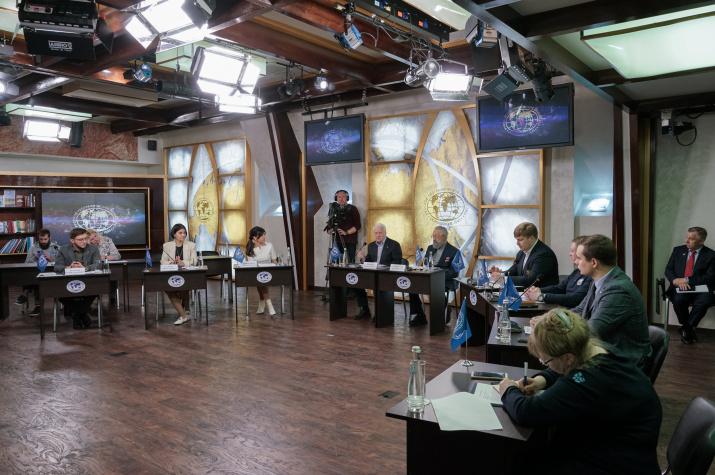On May 27, a meeting of the Media Club was held at the Moscow Headquarters of the RGS. Scientists and experts talked both about already implemented projects and plans for the current year. One of the most significant projects of 2022 will be the "big cleaning up" on the Arctic islands. It will be carried out by representatives of the Russian Geographical Society together with environmental units of the Ministry of Defense of the Russian Federation.
Integrated ecological and social project “The big cleaning up in the Arctic" includes joint environmental work of the RGS volunteers, environmental units of the Ministry of Defense of Russia, Arctic regions, public organizations and the business community. The work will be carried out in three regions of the Russian Arctic: in the west (Kildin Island, Murmansk Region), in the central part (Khatanga village, Krasnoyarsk region) and in the east (Wrangel Island, Chukotka Autonomous Okrug).
According to experts, there are about 12 million barrels that previously contained fuel in the coastal zone of the Arctic Ocean alone. On Kildin Island, the working groups are to clear the territory of former military units from technical debris. They will use a new method of metal cutting: plasma metal cutting. This will significantly increase the work efficiency. In 2022 it is planned to remove about 300 tons of various structures.
The problem of pollution in the Arctic is especially relevant for residents of Russia, since it is Russia that has the largest Arctic zone (38% of the Arctic coast). 18% of the country's territory belongs to the Arctic zone, and it is there that the largest number of pollution objects are concentrated. For residents of the Arctic regions, the current unfavorable environmental situation threatens possible damage to health. For small indigenous peoples of the North, environmental pollution threatens irreversible changes in the habitat, the inability to lead a habitual way of life.

